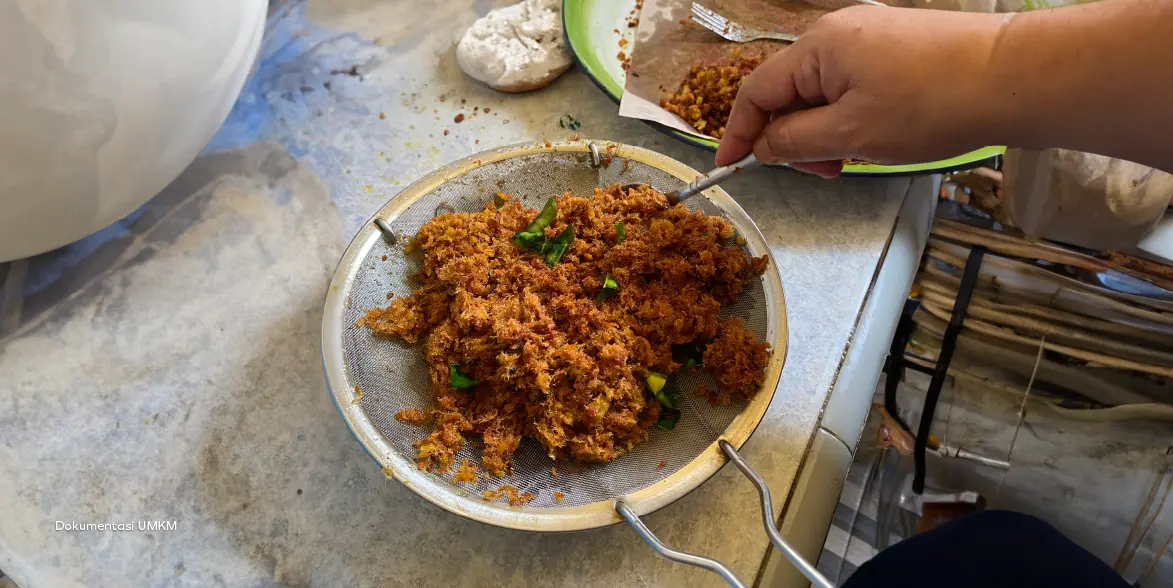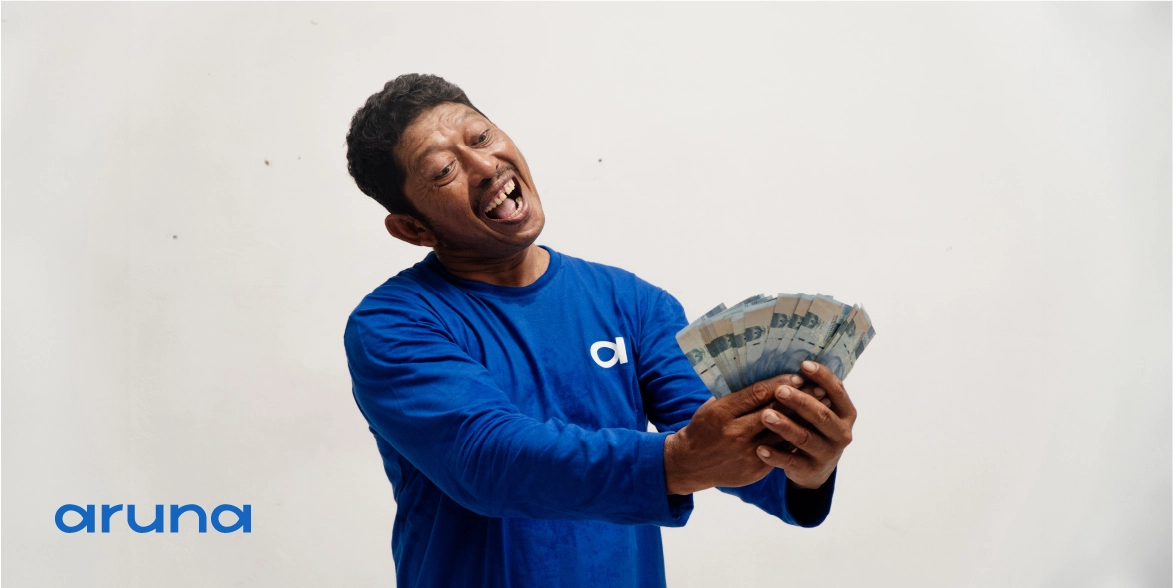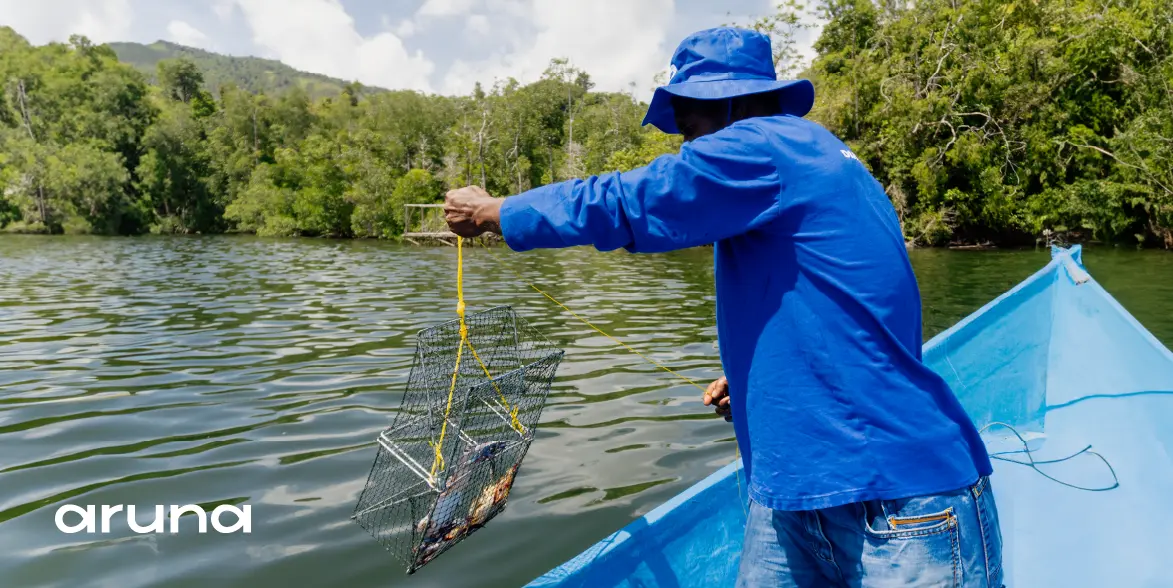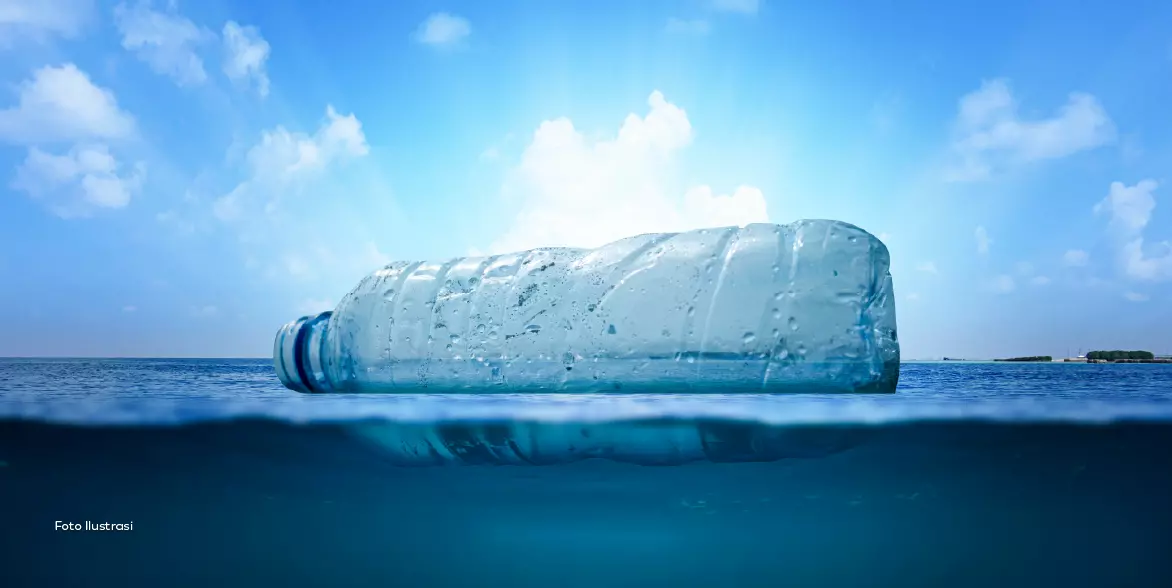The Ministry of Marine Affairs and Fisheries (MMAF) targets a 4-6% increase in the Gross Domestic Product (GDP) of the fisheries sector by 2023. To achieve this target, MMAF continues to promote the utilization of marine resources, including through downstreaming. Fisheries downstreaming is the process of converting raw fish products into processed products with higher added value.
One successful example of fisheries downstreaming is the production of fish floss in the Selayar Islands, South Sulawesi. The fish floss is produced by the Kembang Dahlia Group, coastal women from Mekarindah Village in the Selayar Islands.
Fish Floss Production by Kembang Dahlia Group
Eleven coastal women are part of the Kembang Dahlia Group. Initially, fish floss was only produced on a small scale. Over time, their business continued to grow and became more successful. Their products are not only marketed around Selayar but also in various regions of Indonesia, such as Jakarta, Kendari, Makassar, and Kalimantan. The fish floss is sold for Rp15,000 per 100-gram pack.
Each week, the Kembang Dahlia Group produces fish floss twice. The production process takes about 9 hours per session. Rosmina, from the Kembang Dahlia Group, explained that the entire process of making fish floss is done independently, from sourcing raw materials to packaging.
The high-quality fish floss is securely and attractively packaged. The raw materials for fish floss production are obtained from local fishermen in three nearby hamlets, including Saburangiah, Bansiang, and Alasah.
Fisheries Potential in the Selayar Islands
The waters of the Selayar Islands have abundant fish resources, especially skipjack tuna, mackerel tuna, and tuna. These fish have high economic value and are in demand in the market. This fisheries potential can be optimized through the development of processed fish products, such as fish floss production.
Fish floss businesses have the potential to be sustainable because fish floss has a long shelf life and is easy to distribute. Fish floss can be stored for 6 months to 1 year if properly stored. Fish floss is also compact and not easily damaged, making distribution easy.
Positive Impact of Fisheries Downstreaming
Fisheries downstreaming has had a positive impact on coastal communities in the Selayar Islands, one of which is creating job opportunities for coastal women. This shows that coastal women can also increase their productivity and improve family economies. The fish floss business has provided additional income for coastal communities.
Furthermore, fisheries downstreaming can also increase the added value and competitiveness of fish products. Fish floss has a higher market value compared to raw fish. Selayar Islands’ Fish Floss has been marketed outside the city and even beyond the island.
As a sustainable fisheries company, Aruna appreciates the efforts of the Kembang Dahlia Group in developing fish floss products. The fish floss produced by the Kembang Dahlia Group is a real example of how fisheries downstreaming can have a positive impact on society and the environment.
Maritime Foundation and Aruna are also committed to empowering medium, small, and micro coastal community businesses, especially those involved in fish product processing. Let’s support local fisheries businesses by buying their products. In doing so, we contribute to improving the welfare of coastal communities and the sustainability of fisheries resources.











Leave a reply
No comments found.